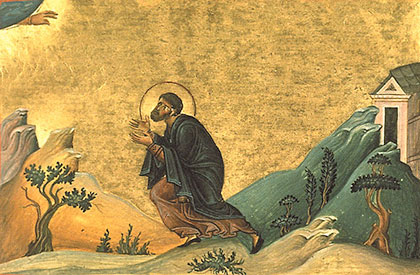
[ABOVE—A monk of Caesaria, by anonymous [Public domain], via Wikimedia Commons]
Not a household name today, Pamphilius was a Christian scholar and priest who developed a magnificent library in Caesarea near the end of the third and beginning of the fourth centuries. The famous Jerome, translator of scripture into Latin (The Vulgate) used that library some years after Pamphilius’ death. Rather than produce original writings, Pamphilius’ care was to copy and edit the texts which came under his purview. Allegedly his library was second only to that at Alexandria and contained several early copies of the Gospel of Matthew. Muslims destroyed this treasure house of books when they invaded Palestine in the seventh century.
From Christ to Constantine; Trial and Testimony of the Early Church. The first three centuries were decisive for Christianity. The existence of the church was threatened by powerful opponents. These programs bring you close to the early believers.
Arrested for his faith by a heathen governor, Pamphlius was cruelly tortured in prison. Nonetheless, he continued to edit the Septuagint (a Greek version of the Old Testament) during his two years in prison. With the help of Eusebius of Caesarea, he also wrote a defence of Origen, an earlier scholar who had settled in Caesarea.
After two years, a new governor beheaded Pamphilius. Eusebius of Caesarea, who became the first notable historian of the church, was so impressed by Pamphilius that he renamed himself Eusebius Pamphili.

